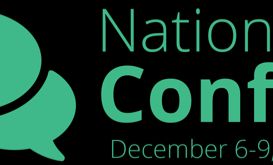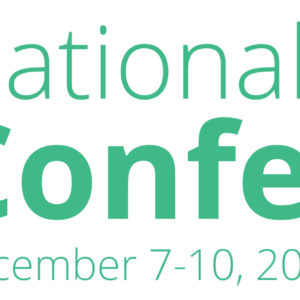Here’s the next in our series of posts meant to prepare you for the National Sex Ed Conference. This week, we spotlight Zelaika Hepworth Clarke, Ph.D.—also known as the Jamerican Sexosopher—a sexologist and social worker who will be speaking about the decolonization of sexuality education.
1. Give me a bit of background. What keeps you busiest these days?
Last year, I finished my Ph.D. in Human Sexuality from Widener University. I am currently based on my family farm in the Hudson Valley in New York, where I am on call for any farming emergencies that may arise. I occupy myself with self-caring activities and the (auto)decolonization project (working on decolonizing my mind and my sexualities). This entails using a variety of mindfulness techniques, including radical self-acceptance, body scanning, beginners mind, and a non-judgmental approach to self-loving as a means of overcoming the negative internalization of oppressive forces associated with colonization.
I am working on sharing my knowledge, and have been looking for new ways to encourage others to ask themselves: what does sexual freedom and liberation look like outside of toxic patriarchal structures? The process of decolonizing oneself, is an individual process, unique for everyone, but it usually involves cognitive restructuring, mindfulness, critical thinking, and the unlearning/relearning of certain concepts.
In service of sharing what I have learned, I am the co-guest editor for the Journal of Black Sexuality and Relationships special edition on Decolonization, and am excited to work on recruiting and mentoring writers interested in topics related to decolonization and black sexualities. I am also creating a sexualities concentration (with emphasis on social justice) at Goddard College in Vermont with Herukhuti, a thought leader from the Association of Black Sexologists and Clinicians (ABCS). In addition, I am currently working on a book that will explore this topic in greater depth.
2. What are your main areas of interest within the field of sexuality?
I am interested in cultural sexology, sexosophy, sexecology, and decolonizing sexualities. I specialize in the philosophy of sexuality, especially looking at African philosophy and at how perspectives outside of the ones we are typically exposed to can provide insight into sexualities. I am interested in the continual investigation of how sexualities, “genders,” and relationships were conceptualized in pre-colonial Africa.
I specialize in decolonizing sexualities, which includes increasing critical thinking around sexuality and highlighting non-hegemonic narratives about topics related to sexuality. I specialize in Osunality, or African eroticism, that affirms the normality of pleasure. Through my studies on osunality, I was able to shift my understanding of sexualities, creating theories that are pleasure focused, and that de-pathologize harmless paraphilias.
As a sexuality theoretician, I created the auto-sexual-decolonization process, which explains how self-love can be utilized to decolonize oneself. This process can assist people in the emancipation from internalized oppression.
3. What has most informed your trajectory within this field?
Traveling around the world (I have been to 53 countries) and seeing multiple ways of understanding love and expressing passion has greatly impacted my commitment to and interest in the field.What has been informative is listening to voices that have been marginalized and silenced, because they provide a valuable perspective that has been left out of my training.
One of the most profound experiences in my sexuality scholarship was reading African Sexualities: A Reader. It was transformative because it celebrated many perspectives I was not exposed to in the 12 years I’ve dedicated to studying sexuality. I enjoy learning about new sex-positive and critical perspectives that empower marginalized populations.
4. What obstacles have you faced over the years as a sexologist, and how did you overcome them?
The sexuality field (like all others I can think of) are subject to the perpetuation of white supremacist capitalist cis-hetero-patriarchal ideologies. It is uncomfortable hearing generalizations about human sexuality presented as factual when they do not apply to communities of color or indigenous folks. I work on dealing with these obstacles by retrieving and reviving counter-hegemonic information surrounding sexuality.
5. When did you realize there was a need for a presentation on decolonization, and/or that this was an issue in the field?
When learning about the history of the sexuality field, I became skeptical because I knew there were (non-Western) perspectives being left out. When I discovered how challenging it was to obtain information that does not perpetuate hegemonic perspectives, I began to work even harder at reviving indigenous views that have been missing. I took it upon myself to retrieve information I did not have access to while studying sexuality in Western universities. I created a presentation I dreamed of attending myself.
My workshop highlights holistic techniques used in precolonial African sexuality schools and perspectives that have been missing from hegemonic sexuality discourse. I am excited to share my research with sexuality educators committed to social justice.



